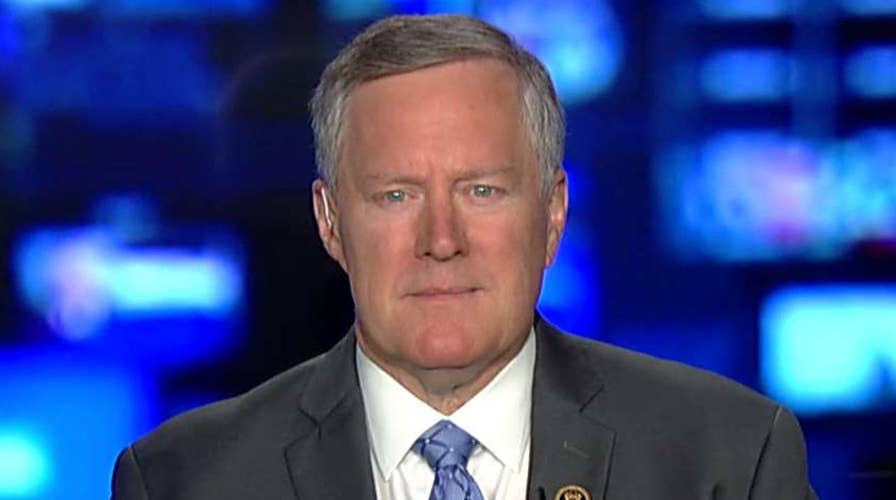Rep. Meadows on efforts to force a clean repeal of ObamaCare
Chairman of the House Freedom Caucus says the public has every right to be frustrated with GOP inaction on health care
Treasury Secretary Steve Mnuchin’s weekend call for Congress to tie its upcoming vote on increasing the federal debt limit to approving billions for Hurricane Harvey relief is getting support from congressional Democrats but apparent little backing from Republicans.
"The president and I believe the (debt ceiling) should be tied to the Harvey funding,” Mnuchin told “Fox News Sunday.” “With Harvey, it's moved the situation up earlier. ... And without raising the debt limit, I'm not comfortable that we would get the money that we need this month to Texas to rebuild."
Members of Congress left for the August recess knowing that the vote on raising the debt ceiling would be a high priority upon returning since the federal government has technically already reached its borrowing limit.
However, the unanticipated arrival of Harvey on Aug. 25 has thrown a wild card in the House and Senate’s already-packed agenda. The storm's record rainfall caused severe flooding throughout southeast Texas, then Louisiana, and is expected to cost as much as $190 billion.
“Providing aid in the wake of Harvey and raising the debt ceiling are both important issues, and Democrats want to work to do both,” Senate Minority Leader Chuck Schumer, New York, and House Minority Leader Nancy Pelosi, California, said in a joint statement hours after Mnuchin’s comments Sunday. “Given the interplay between all the issues Congress must tackle in September, Democrats and Republicans must discuss all the issues together and come up with a bipartisan consensus.”
Before the hurricane disaster, Mnuchin said that Congress would need to raise the $19.9 trillion borrowing limit by Sept. 29 to avoid a catastrophic default on the debt, allowing the government to continue borrowing money to pay bills like Social Security and interest.
Republican leaders were purportedly making plans to pair the debt limit increase with the first batch of Harvey aid -- the $7.9 billion initially being requested by Trump.
However, many of Congress' most fiscally conservative members sound opposed to the plan.
On Monday, Rep. Mark Walker, leader of the Republican Study Committee, a roughly 170-member conservative House group, expressed opposition to the plan.
“What happened in Texas is a tragedy and it needs an urgent Congressional response,” the North Carolina Republican said in a statement. “Congress is united behind this effort, but I worry about jeopardizing an agreement with such legislative games.
"As we have stated for months, the debt ceiling should be paired with significant fiscal and structural reforms. The alarming trajectory of our debt imperils all supplemental appropriations for dealing with disasters like Harvey in the future.”
The House Freedom Caucus -- another fiscal-conservative group whose roughly 36 GOP members represent a significant and powerful voting bloc -- also appears opposed to such a plan.
"To attach a debt ceiling vote to increased spending is not anything that any conservative would normally support," group leader Rep. Mark Meadows said before Mnuchin's comments Sunday.
The North Carolina lawmaker also said linking the two measures "puts everybody in a very difficult situation" and would not be practical.
Maryland Sen. Ben Cardin, the top Democrat on the Senate Committee of Foreign Relations, told CNN on Monday that he was “willing to consider bringing the issues together.”
In addition to the debt-ceiling issue and the Harvey funding, Congress must also pass a spending resolution by Sept. 30 to avoid a government shutdown.
Trump plans to meet with congressional leaders from both parties this week as lawmakers return to Washington after their summer recess.
The Associated Press contributed to this report.













































